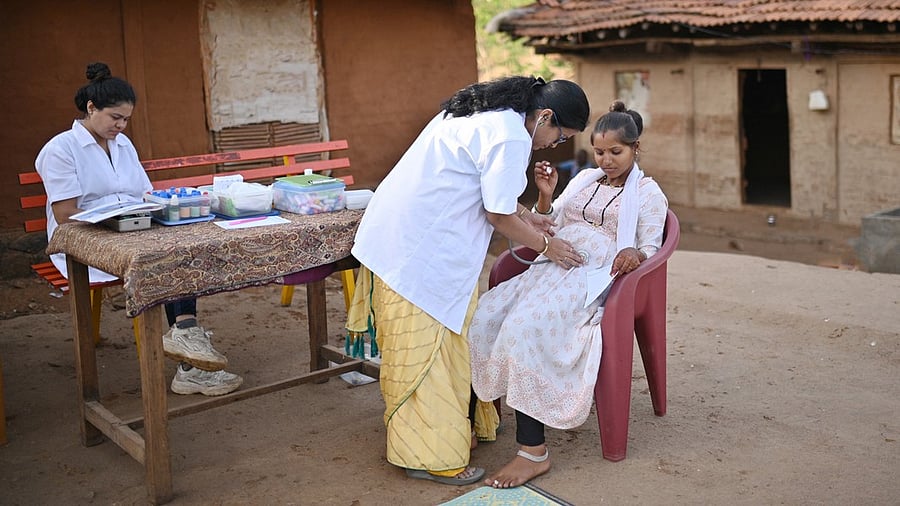
A doctor is conducting a routine examination and providing prenatal care to ensure the well-being of the expectant mother. Representative image.
Credit: iStock Photo
Bengaluru: For over 22 years since 2002, the Karnataka health department has booked a mere 138 cases for preconception and prenatal sex determination, with Bengaluru Urban district seeing the highest of 39 such cases, according to data accessed by DH.
Belagavi (18), Bagalkote and Vijayapura (13 each), and Tumakuru (10) follow Bengaluru Urban, while the rest of the districts either have either zero or single-digit cases under the Pre-Conception and Pre-Natal Diagnostic Techniques (Prohibition of Sex Selection) Act, 1994.
According to the health department data for the period between 2002 and January 2025, only 60 of the 138 cases (56.5 per cent) have been closed. These cases — filed under the Central Act, which bans prenatal sex determination and regulates the use of prenatal diagnostic techniques — cover non-registration of testing centres, non-maintenance of records, communication of the sex of the foetus and other violations.
Principal Secretary (Health) Harsh Gupta, who acknowledged that these were measly figures, noted that there were practical difficulties in checking all establishments and filing cases. "There is no doubt this is a major issue but filing more cases might not solve it; we cannot rely only on that. We cannot ban prenatal testing because that is crucial for mother and child health. We don't have a structured mechanism for inspections; we need one," he said.
The official also pushed for granular data on delayed registration of pregnancies and sex ratios from the gram panchayat level, which could indicate irregularities in prenatal diagnostic practices. "A number of efforts are required to tackle this issue. Cases are not the only way," he asserted.
Cases are filed based on complaints as well as during routine checks. In all of 2024, 35 cases were filed across the state, with four decoy or sting operations being conducted by the department.
Dr Vivek Dorai, Deputy Director, Medical - 2, who oversees PCPNDT cases as well, told DH that these were conducted at SPG Hospital in Bangalore Rural district, Iqra Hospital in Belagavi, Private Home at Nelamangala in Mandya, and Deepak Nursing Home in Kolar.
It may be recalled that a massive prenatal sex determination and female foeticide racket was busted in October 2023, leading to the arrest of at least 36 people. This racket, which operated across Mandya, Bengaluru and Mysuru districts, had conducted an estimated 1,000 female foeticides over four years. Following this, more such rackets were unearthed in 2024, including a female foeticide case at the government health quarters in Pandavapura, Mandya district, and another in Bagalkot where a 33-year-old woman died during the illegal medical procedure.
To eliminate female foeticide, the state has established a task force in collaboration with the police department. In January 2024, the department also wrote to the Centre to make the penal clauses in the Act more stringent by increasing the prison term from three to five years and the fine from Rs 10,000 to Rs 5 lakh, but the Centre has not yet responded in this regard, noted state health minister Dinesh Gundu Rao.
Without this, he acknowledged that there is a risk of those being charged continuing their illegal business elsewhere in the state and country after paying the meagre fines or completing the short jail term.
ReplyForward